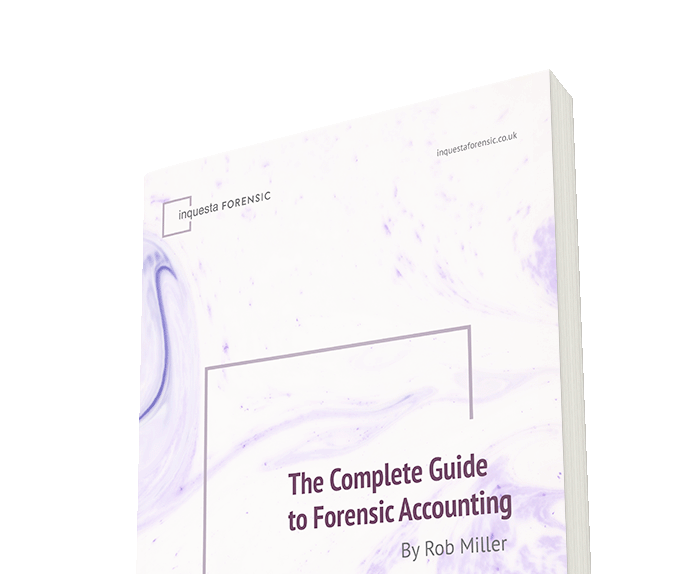PROCEEDS OF CRIME ACT (POCA) CONFISCATIONS
Our team of expert forensic accountants has an in-depth understanding of Proceeds of Crime Act confiscations and can analyse complicated chains of data to follow money and find its source.
Why Use Forensic Accountants for a Confiscation Order Under the Proceeds of Crime Act
The initial statements in confiscation order proceedings can be particularly harsh. Instructing a forensic accountant can provide a huge advantage in combating this. An experienced forensic accountant will attempt to lower any excessive amount stated in the confiscation order, as well as attempt to prove that the amount a defendant benefited by way of criminal activity is actually less than stated.
The Basics of Proceeds of Crime Act Defence
The Proceeds of Crime Act sets out the key legislation surrounding the recovery of assets acquired via criminal means. The most common method of recovery is confiscation, but recovery can also take the guise of cash seizure, taxation powers, and more.
The main goal of the asset recovery schemes in the POCA are to deny criminals the short and long-term use of their wrongfully acquired assets, recover all of said unlawfully acquired assets, and to deter future criminality.

Need Our Assistance?
If you need specialist advice for a Proceeds of Crime Act confiscation order, contact our expert team today.
Our POCA Process
A forensic accountant can be vitally important in confiscation proceedings. We understand the POCA and are instructed on dozens of cases surrounding it each year.
Our work typically entails:
- Liaising with instructing solicitors and counsel
- Analysing and inputting financial data
- Re-calculating the benefit and available amounts
- Negotiating directly with the prosecutors’ financial investigators
- Attending court to give evidence as an expert witness.
Free eBook
The Complete Guide to Forensic Accounting
Learn how forensic accounting can have an impact on a wide range of business and personal matters, the processes involved, and how Inquesta Forensic can assist with our free downloadable guide.

The POCA Confiscation Order Process
The POCA confiscation order process is an involved one that has been in use for many years. While mistakes can happen, the core procedure remains unchanged. It generally involves steps such as consideration, order, amendment and enforcement.
Before taking on a case, a forensic accountant will typically consult with their client to ascertain the basics of the situation and offer an expert opinion on the case’s validity and chances of success. It is at this point that the client will present any preliminary evidence and information.
The next part of the process is to perform a thorough analysis of the evidence and data that was provided by the client. Such is the level of skill and attention-to-detail required, a forensic accountant can often spot things that could prove crucial to a case which may otherwise have been missed.
A forensic accounting investigation will leave no stone unturned in its pursuit of the facts. As such, there are often times where it leads a defence team’s case down another avenue of exploration that had not been thought of before. Should this happen, a forensic accountant will identify any additional sources of information that would help the process reach a satisfactory conclusion.
With their analysis complete, a forensic accountant will present their findings in the form of a detailed and in-depth report. The conclusions of this document will most likely be examined in court, so they will have to be strong enough to withstand cross examination — often from other forensic accountants.
Where necessary, a forensic accountant can assist a legal team by acting as an expert witness in court under cross-examination. Their evidence and unique insights will often prove pivotal in a case.
If the defendant fails to pay the amount owed in the order, a court will decide whether this is justified or if a default sentence should be served. Should the situation call for it, an enforcement receiver can be appointed to sell the defendant’s assets to pay the order. An enforcement receiver is an independent officer of the court and has powers that allow them to go about their duties.
Why Rely on Us for Proceeds of Crime Act Guidance
We are perfectly equipped to defend confiscation proceedings and negotiate a manageable settlement on behalf of your clients. In addition, we have been called upon on multiple occasions to provide expert witness statements.
As specialists in all aspects surrounding the Proceeds of Crime Act, we can provide a thorough, all-encompassing service that is tailor-made to suit you and your client’s individual circumstances. From an initial consultation right the way through to helping with court proceedings, we promise to leave no stone unturned in pursuit of the perfect result.
Frequently Asked Questions
Under normal circumstances, a confiscation order will either need to be settled immediately, or within three months of the verdict being delivered. This is provided they are able to successfully prove they do not have sufficient funds to cover their obligations right away.
Yes, it is possible for a confiscation order to be extended up to a maximum of six months. Once again, it will be up to the defendant to prove they are unable to pay the damages awarded within the initial three-month deadline.
If a defendant wishes to prove they are unable to pay a confiscation order and request a lighter penalty, they must provide evidence that their assets are not sufficient to cover their costs. An application should also be made to the Crown Court.


